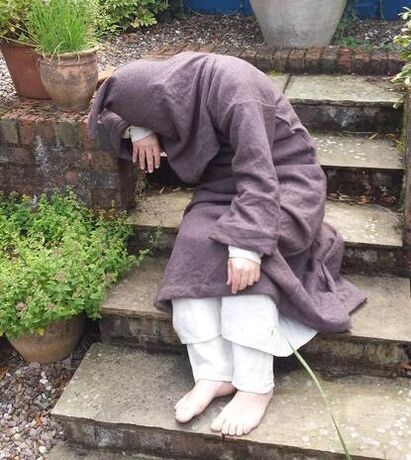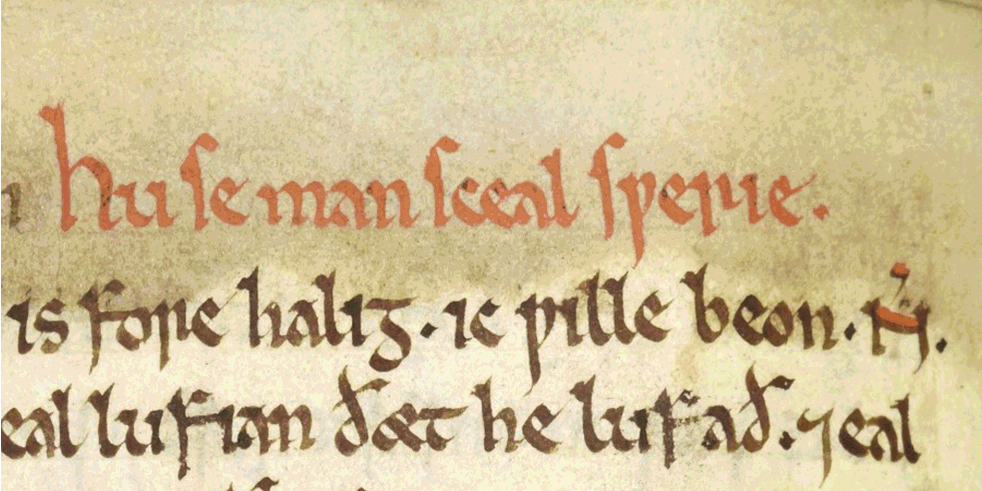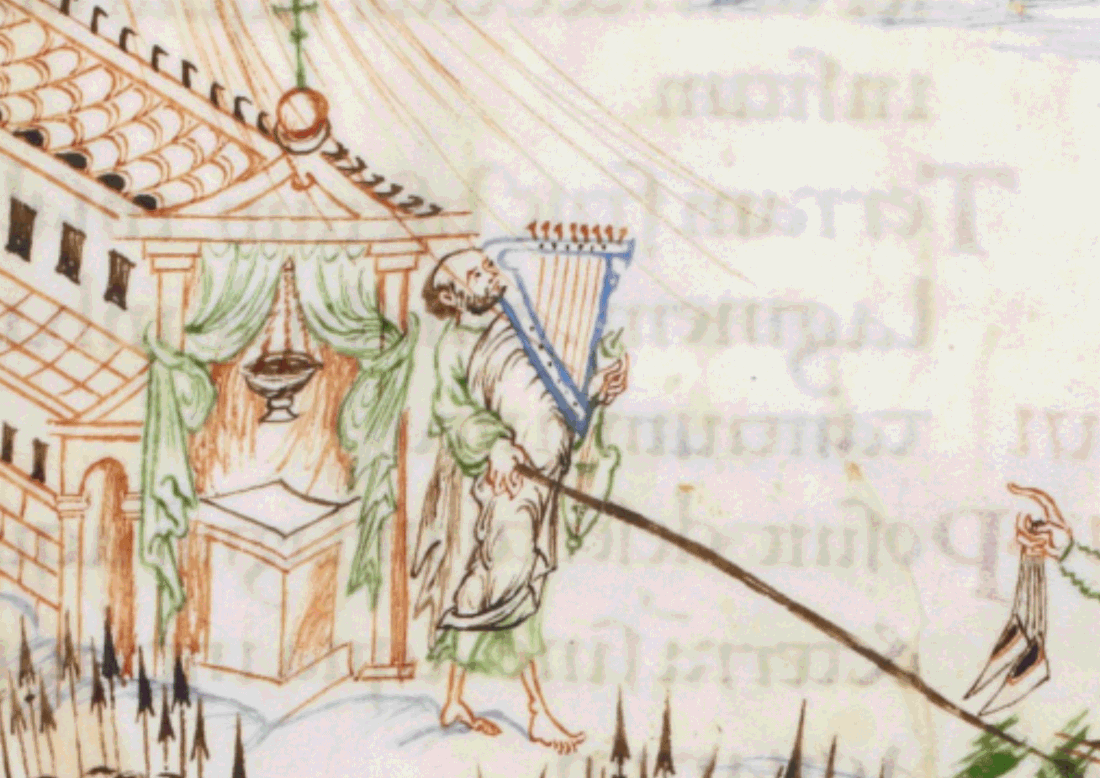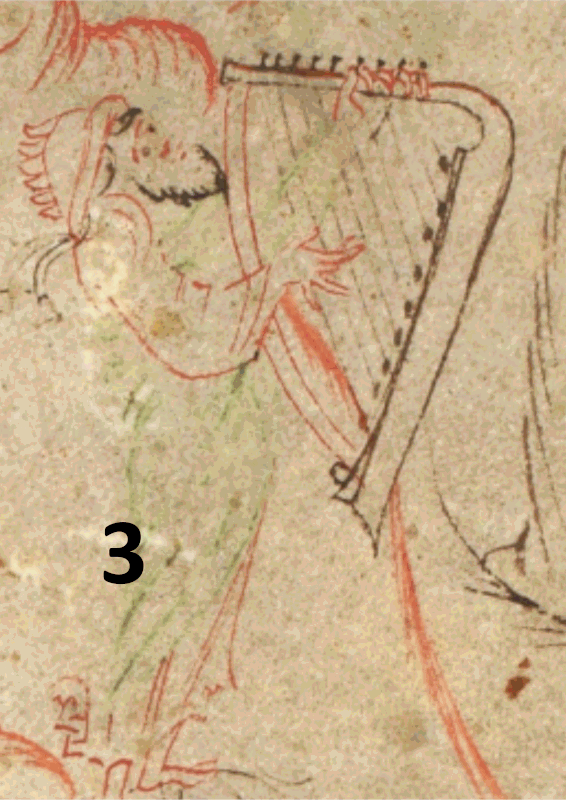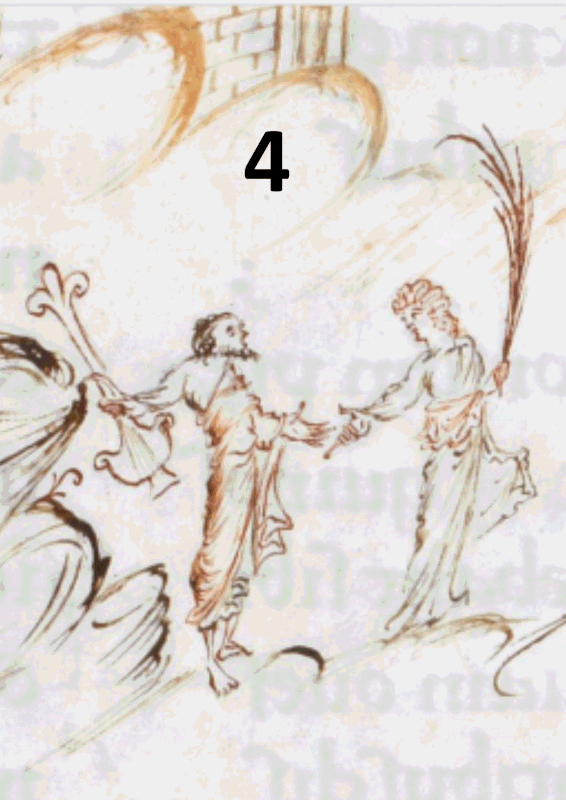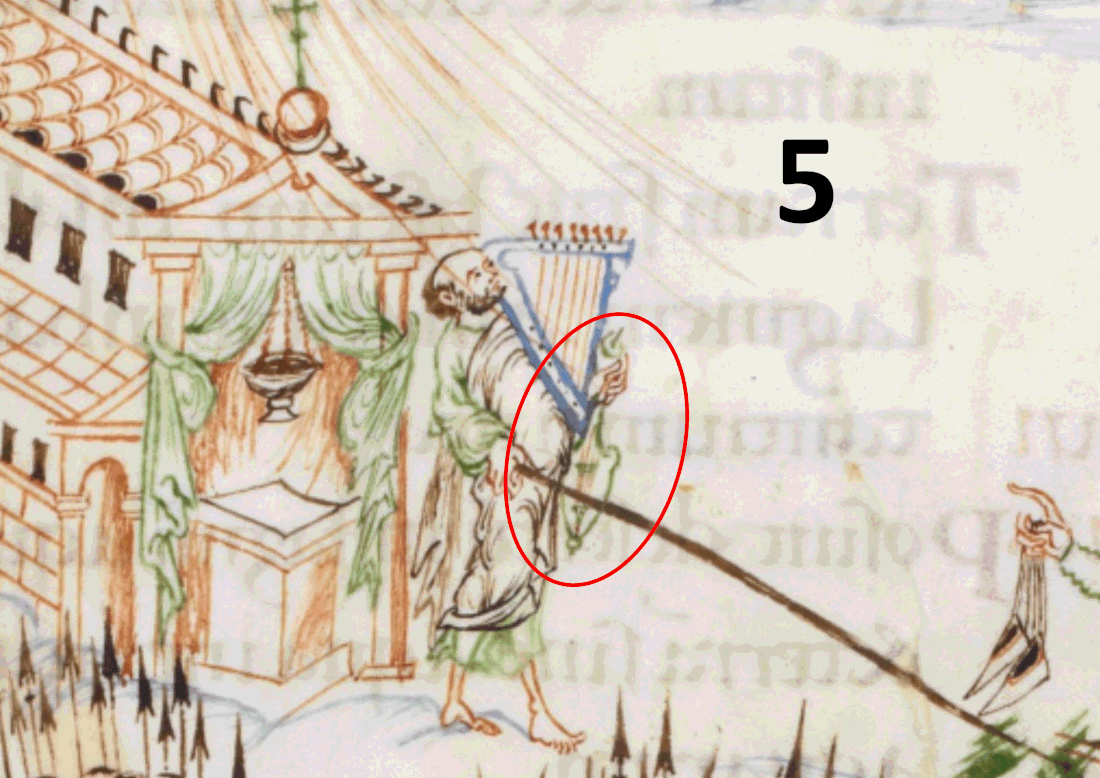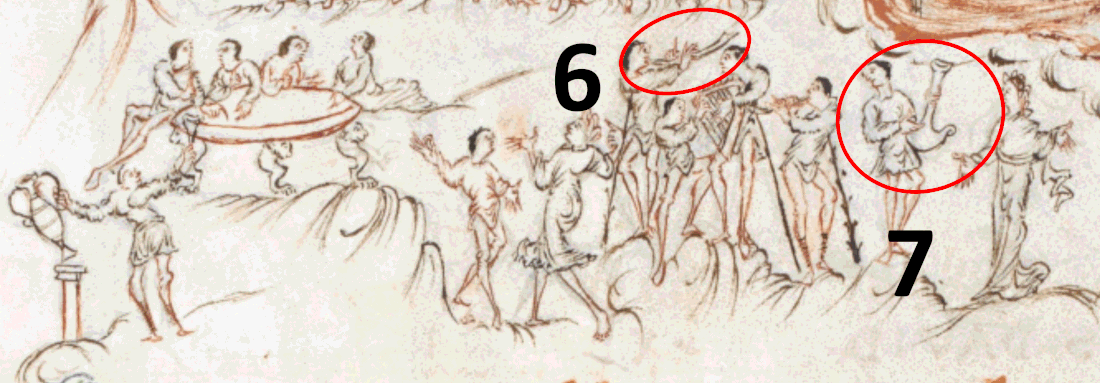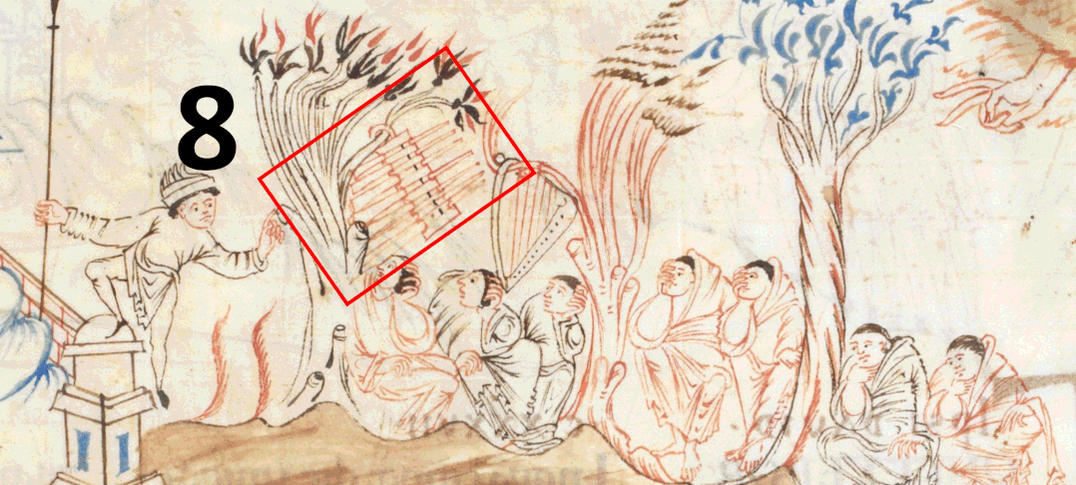|
The Anglo-Saxon Monk announces the latest translations from Textus Roffensis Blessed readers, I'm quite sure most of you are honest souls. At least I hope so. But every now and then in life we may meet with someone who thinks we are not, and they may accuse us publicly of some offense. What is to be done? Well, the Anglo-Saxons had a few things up their lawful sleeves designed to restore one's honour. Perhaps we may learn from them. So please take a look at the most recent translations of texts from the great book of Rochester, Textus Roffensis, which sheds considerable light on the culture and history of early medieval England. The first of these texts deals with the matter of swearing oaths. The second to a related issue, that of defending your claim to land that has been bequeathed to you. Update 16 Sept 2022. My older translations of texts from Textus Roffensis for Rochester Cathedral have now been reformatted, so they are no longer available as PDFs but are in webpage format. This means they now have new web addresses. Please bear with me as I correct the links. Please check out the Rochester Cathedral Textus Roffensis page for both my older and newer translations. This third text tell a complicated story of tenth-century theft, lying and what appears to be a case of a good bishop being denied his right to defend his claim to land. I'm on the bishop's side, of course. The final two translations relate to wergild, the value put on a person's life in matters of law. Though not directly mentioning oaths in these texts, it should be noted that the higher your wergild, the higher your rank, and hence the more valuable your oath. But please don't worry too much if you're a lowly ceorl (the lowest of the free ranks), or even a slave, for there is a way up the social ladder, at least that's what the last of these texts suggests.
0 Comments
Its quiz time with the Anglo-Saxon Monk. Can you identify the musical instruments? Updated with ANSWERS. Blessed ones, I apologise profusely for my negligence. I have been so preoccupied with all my other spiritual duties that I've failed miserably as a blogger. I know, I'm always apologising; it's because I'm so humble. But my regret is sincere. Well, to make up for my inadequacies, I've brought to you a judicious measure of lightheartedness, inspired by the work of the other Monk of this website, who's been scribing away for a new book to which he's contributing. He's been writing on two subjects. The first I'm not sure I should even mention: 'In bed with the Anglo-Saxons' is the title. I was going to say I'll leave that to your imagination, but really you should completely scrub clean your filthy minds! The other topic is more civilised: 'Rejoicing with the Anglo-Saxons'. It's true that his focus is not on spiritual joy (we shouldn't expect too much of him, I suppose) but at least he is addressing a matter close to my heart, the joy of music and dance. What! You don't think monks should be enjoying such pleasures? Did not our Lord enjoy himself at the wedding at Cana? Did not King David the psalmist play his harp? Nothing more to be said. Well, before I get too upset by your impertinence, I had better get the ball rolling, as you might say in the twenty-first century. So, blessed ones, please find below a series of images from the Harley Psalter (Canterbury, Christ Church Cathedral Priory, first half of the eleventh century). Your task is to identify the musical instruments. Enjoy yourselves. Let your hair down a little! Tip: References to the Psalms are to the Vulgate version. I expect you to read all the verses, but don't be unduly ruled by the description of the instruments in the Psalms (if there is a description). It's what the Anglo-Saxon artists were depicting that matters here. Updated: answers below 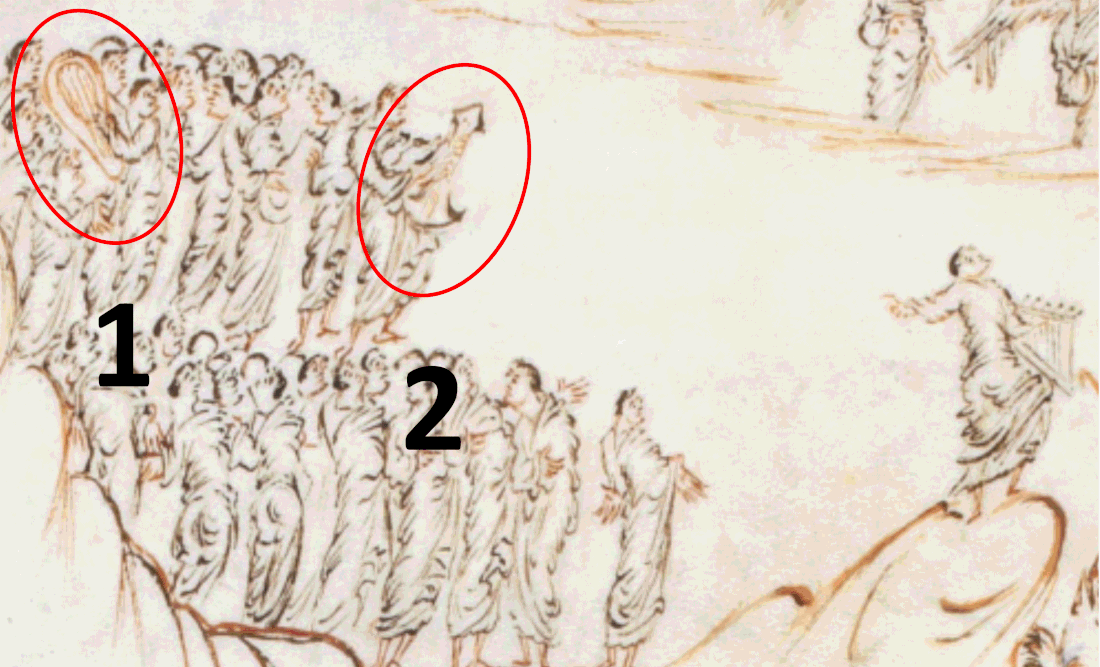 No. 1 and no. 2: With what two instruments are 'ye just' getting in the swing? Psalm 32:1-3. © British Library Board. London, British Library, MS Harley 603, f. 18v. No. 3. Too easy? Well get technical then! Psalm 143:9. © British Library Board. London, British Library, MS Harley 603, f. 73v. No. 4 The Psalmist meets Lady Joy with what instrument in his hand? Psalm 42:4. © British Library Board. London, British Library, MS Harley 603, f. 25r. No. 5: With what instrument is the Psalmist arising at dawn? Just the one in his left hand, please. Psalm 107:3. © British Library Board. London, British Library, MS Harley 603, f. 55v. No. 6 and no. 7: Aha, aha, it's party time! Identify the two instruments in red circles, which form part of the 'noise' of the feast. You need to imagine the strings for no. 7. Oh, and do check out those jazz hands on the dancers. Psalm 42:5.© British Library Board. London, British Library, MS Harley 603, f. 24v. No. 8: All good things come to an end, and this lot look like it's all been just too much. But to what instrument is the still-capering fellow on the left pointing? Psalm 136: 1, 2. ♫♪By the rivers of Babylon, There we sat down, Yeah eh we wept, When we remembered Zion.♪♫ (1970s cultural reference provided by Dr Monk). © British Library Board. London, British Library, MS Harley 603, f. 70r. All answers welcome in the comments section below. Anachronistic identifications and dubious humour are permitted on this occasion. Just this once, mind you. A future post will provide you with well-informed answers. The best respondent will receive an extra special blessing from yours truly. Answers Many thanks, indeed, to everyone who responded here, on Facebook, and particularly all those very strange people in the Twitterverse known as the Fyrd. Special Anglo-Saxon Monk shouts go to @Huscarl1066 (Twitter) and Russ Jenkins (below in comments). Extra prayers have been said for both of you. No. 1: Rounded lyre No. 2: Long lute* (illustrating cithara) No. 3: Triangular framed harp (illustrating psalterium) No. 4: Another long lute (illustrating cithara) No. 5: Plucked fiddle (illustrating cithara) No. 6: Flute (Anglo-Saxon flutes were often made of bone.) No. 7: Yet another long lute No. 8: I was hoping someone would tell me! * term uses by Segerman Further reading:
Robert Boenig, 'The Anglo-Saxon harp', Speculum 71.2 (April, 1996), pp. 290-320. Graeme Lawson, 'Musical instruments', The Blackwell Encyclopaedia of Anglo-Saxon England, ed. Michael Lapidge et al (Oxford: Blackwell, 1999), pp. 328-29. Helen Leaf, 'English Medieval Bone Flutes: A Brief Introduction', The Galpin Society Journal 59 (May, 2006), pp. 13-19. Ephraim Segerman, 'A short history of the cittern,' The Galpin Society Journal 52 (April, 1999), pp. 77-107; and The Development of Western European Stringed Instruments (Manchester: Northern Renaissance Instruments, 2006). |
Details
|

